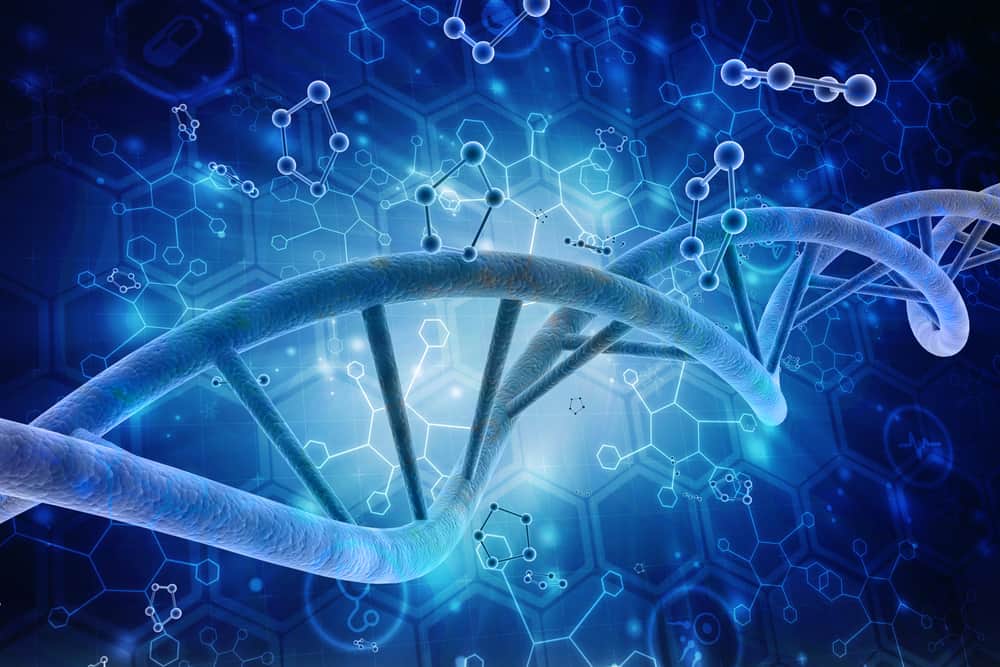Contents:
- Medical Video: Sadness and Anger: Agitated Depression and Borderline Personality Disorder
- Depressed people get angry quickly to disguise their illness
- What triggers symptoms of agitation in depressed people?
- How depression agitation can be recognized
- Things to watch out for
- What is the handling of depression agitation like?
Medical Video: Sadness and Anger: Agitated Depression and Borderline Personality Disorder
Depression is one of the most common mental disorders in the world. The main symptoms of depression include feelings of emptiness, sadness, misery, helplessness, or despair that continue to occur for at least 2 weeks. However, there are some people with depression who tend to be angry or always angry, so they seem to be "stubborn" and "fierce". This type of depression is known as depression agitation. What causes a depressed person to get angry quickly?
Depressed people get angry quickly to disguise their illness
Depressed people are often described as being sluggish, always moping, having difficulty concentrating, and unproductive. However, some depressed people can continue to go to school, work, even remainhangout with friends as usual. They do so in an effort to cover up the symptoms of depression they have.
A few people choose to hide their depression with smiles and laughter. On the other hand, some depressed people tend to show negative behaviors, such as anger, sharpness, and excessive frustration. This is a "shield" of his defense to ward off nosy questions from people around him when one day he sees it looking more moody and sad. "What's the matter, ask! No need to pretend to care about it! "
This is called depression agitation. Depression agitation is included as a subtype in the category of clinical depression aka major depressive disorder (MDD). In addition to anger and excessive anxiety, this type of depression can also give rise to psychomotor symptoms, such as a body that cannot be silent ("blinking"; move to and fro), play or twist hair, bite fingers or nails, rub or scratch the skin, scream or talk a lot.
What triggers symptoms of agitation in depressed people?
Some things are very likely to cause someone who is depressed quickly angry, including:
- Experience traumatic events in the past.
- Long term stress.
- Hormone imbalance.
- Underactive thyroid gland (hypothyroid)
- Bipolar disorder.
- Anxiety disorders.
In some cases, certain types of drugs can trigger symptoms of depression agitation. Therefore, it is important for people at risk of depression to avoid these substances. Tell your doctor if you have experienced depression and have a history of using drugs that can trigger symptoms of agitation and ask to replace the drug.
How depression agitation can be recognized
Depression agitation is a little difficult to distinguish from bipolar disorder because both of them show symptoms of mood swings (mood swing). Depression agitation is also quite difficult to distinguish from ordinary depression in general. But if you do not pay attention and handle the symptoms of agitation, this condition can get worse.
In determining the diagnosis, psychologists can recognize depression agitation, how to talk and behave, and mood changes. Doctors must also eliminate suspected bipolar disorder and carry out blood tests if needed to detect the presence or absence of vitamin deficiencies and imbalance of hormone-triggering depression
The diagnosis of depression agitation can also include physical examination with X-rays, MRI scans (magnetic resonance imaging), examination of the spine, urine samples, and examination of basic vital signs. This is done to eliminate the possibility of symptoms of depression agitation caused by other health problems.
After ensuring that a person is depressed, the doctor may also examine the characteristics of agitation in the patient. Guidebook Diagnostic and Statistical Manual of Mental Disorders (DSM-5) states the criteria for someone experiencing depression agitation if:
- Already experiencing major depressive symptoms, at least once.
- Experience at least two symptoms from:
- Signs of psychomotor and physical agitation, as well as symptoms of anxiety,
- Think of things continuously.
- Experiencing stress or feeling depressed,
Things to watch out for
Someone with depression agitation is very risky to carry out behaviors that can endanger themselves or others around them. Depression agitation will be very easy to relapse when the sufferer cannot maintain emotional stability.
Therefore, it is very important to get treatment as early as possible.
What is the handling of depression agitation like?
Like depression in general, this disorder is treated with medication and therapy.
The doctor may recommend antidepressant and / or anticancer drugs to stabilize the mood to control the symptoms of depression agitation. Even so, the medication prescribed for agitation depression may be different from the depression medication in general.
Continuous and regular treatment of depression is needed to prevent the risk of recurrence of depression agitation and prevent the severity of depressive episodes.
Meanwhile, the therapies offered to treat this disorder are usually in the form of psychotherapy and cognitive behavioral therapy. Psychiatric therapy is an important part of dealing with a variety of mood disorders because it teaches depressors to overcome their own symptoms. While cognitive behavioral therapy (CBT) is needed to understand the root of the problem, which aims to change the patient's mind and behavior.












